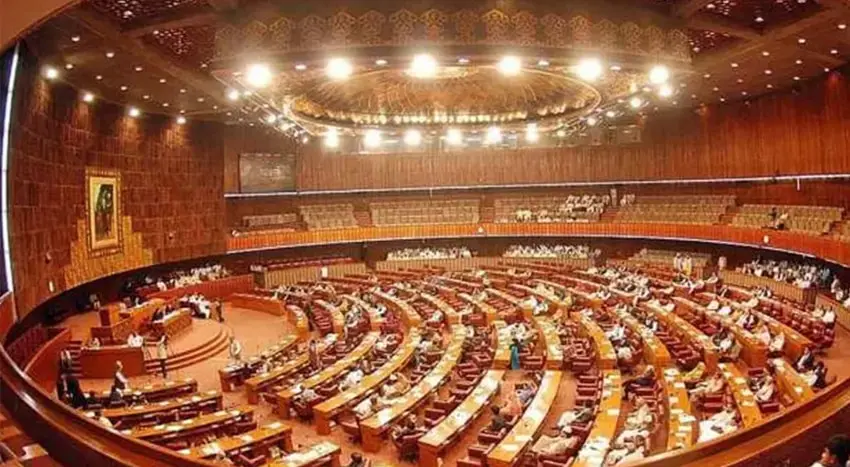ISLAMABAD: The Supreme Court of Pakistan on Thursday declared the National Assembly Deputy Speaker ruling dismissing the no-confidence motion against Prime Minister Imran Khan as unconstitutional.
A five-member bench led by Chief Justice of Pakistan Umar Ata Bandial announced a unanimous decision. The court also announced to restore the dissolved National Assembly and summoned a session on Saturday, April 9, at 10:30 AM, saying the session cannot be adjourned without the conclusion of the no-confidence motion against the prime minister.
The court’s ruling said “the prime minister did not have the right to advise the president to dissolve the assembly […] all the decisions made till date have been nullified”. It added that “if the no-confidence motion against the prime minister succeeds, then the assembly will appoint the new prime minister”.
The bench also comprising Justice Ijazul Ahsan, Justice Mazhar Alam Miankhel, Justice Munib Akhtar and Justice Jamal Khan Mandokhail finished hearing the case earlier in the day and announced the landmark verdict.
The apex court ruled that President Dr Arif Alvi’s decision to dissolve the National Assembly was “illegal” and restored Prime Minister Imran Khan as well as his cabinet as well as restoring the NA proceeding’s before the deputy speaker’s ruling on April 3.
In the landmark verdict, the top court retained the opposition’s no-trust motion against PM Imran Khan. The Supreme Court ruled that the deputy speaker’s ruling was a violation of the Constitution and nullified the dissolution of the National Assembly (NA).
A large number of lawyers, media personnel and politicians, including PML-N’s Shehbaz Sharif and PPP’s Bilawal Bhutto Zardari, were present at the court ahead of the verdict. Special security arrangements were made around the Supreme Court building. A heavy contingents of police and Frontier Corps (FC) personnel have been deployed outside the Ministers’ Enclave.
The verdict said that the government could not interfere in the participation of any MNA in the assembly session. The court further stated that the current order would not impact the proceedings under Article 63 of the Constitution. The chief justice further stated that a detailed verdict will be issued later.


































